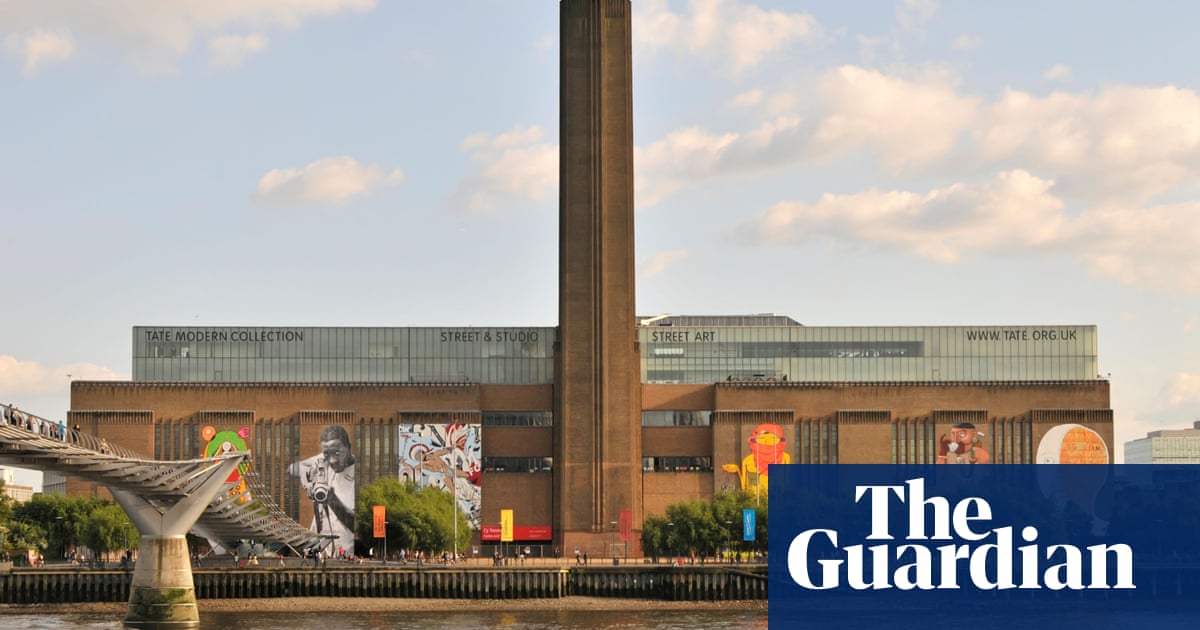Tate has launched an endowment fund and secured £43m from donations in what it calls “one of the most ambitious cultural fundraising campaigns of its kind in the UK”.
Donations to the Tate Future Fund have come from individuals, foundations and Tate trustees, including James Bartos, Bloomberg Philanthropies, Nick Clarry, Mala Gaonkar, Anthony and Sandra Gutman, Jack Kirkland, Jamie and Michael Lynton, the Manton Foundation, Jorge M and Darlene Pérez, Manizeh and Danny Rimer, and Roland and Sophie Rudd.
The aim of the campaign is to raise an endowment of £150m by 2030 to help support the Tate’s exhibition programme and research in perpetuity. Donors are being solicited from Tate’s extensive global supporter network.
Tate’s director, Maria Balshaw, said:“There are a number of organisations in the UK that are working hard to create endowments, especially in higher education, but no cultural organisation has done an active campaign like this before.
“Many organisations in the arts sector would really like to have this kind of support. If you look to our North American peers, museums like MoMA, the Met or the Whitney all have very significant endowments. It is what protects them from the vagaries of economic change and allows them to think and plan long term.”
The fund was announced by Tate’s chair, Roland Rudd, at Tate Modern’s25th anniversaryfundraising gala on Wednesday night, which was attended by more than 600 artists and philanthropists.
The gala itself raised more than £1m from table hosts and guests, which will be used to directly support the Tate’s artistic programme, its collection and its learning and educational activities.
The gala followed Tate Modern’s anniversary celebrations in May, when more than 76,000 peoplevisitedthe gallery in a single weekend. More than 70% of those who visited were under 35 years old, and 2,000 of them joined Tate Collective, making it the largest arts membership scheme for young people in the world with more than 180,000 members, Tate said.
Balshaw said the Tate’s ethics committee helped “advise on every kind of donation that we get”.
Other cultural institutions have recently been urged by pro-Palestine supporters to cut ties with Bloomberg Philanthropies over the company’s alleged links to illegal Israeli settlements in the occupied Palestinian West Bank.
Sign up toArt Weekly
Your weekly art world round-up, sketching out all the biggest stories, scandals and exhibitions
after newsletter promotion
In September, dozens of film-makers including Mike Leigh, Julia Loktev and James Schamuscalled on the New York film festival to drop the sponsor. In January, more than 20 artists taking part in an exhibition at London’s Institute of Contemporary Artsstaged a walkout in support of pro-Palestine demonstratorscalling on the organisation to cut ties with Bloomberg Philanthropies.
And in May, hundreds of theatre and arts professionalsdemanded Islington’s Almeida theatre end its partnership with the company.
Balshaw said Bloomberg Philanthropies supported “a very wide range of arts organisations in the UK and across the world, and they are already very longstanding supporters of Tate.
“In common with all arts organisations and museums in this country, our ethics committee follows the principles laid out by the Charity Commission, so we are obliged to consider all donations with a presumption that we should accept the money if it’s for public benefit.”
